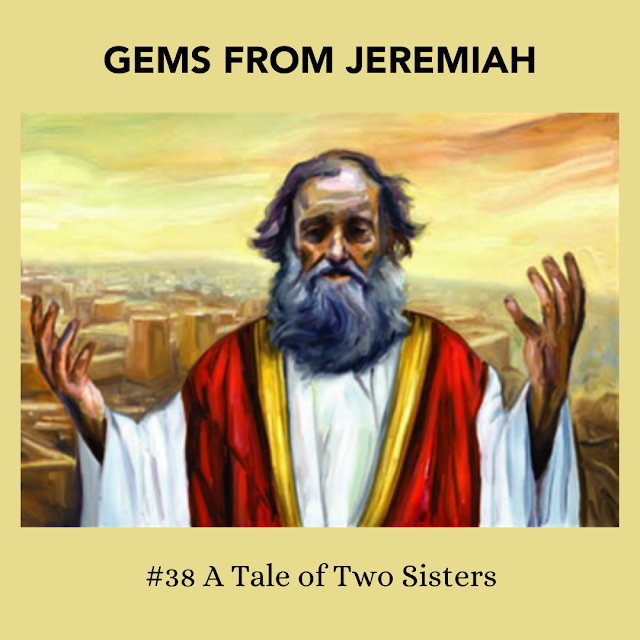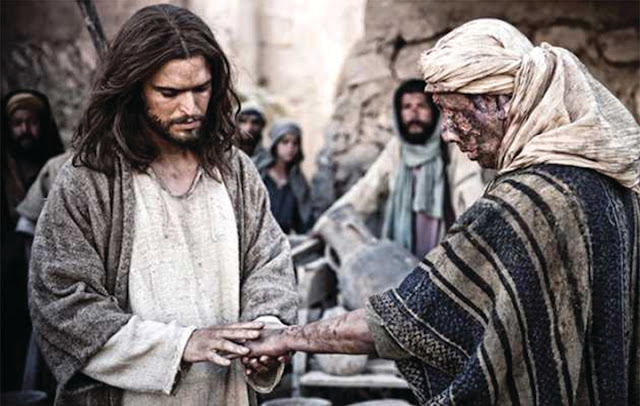GOD'S NEW WORLD, DAY 32 (the fate of the nations, part II)
“A great portent appeared in heaven: a woman clothed with the sun, with
the moon under her feet, and on her head a crown of twelve stars. She was
pregnant and was crying out in birth pangs, in the agony of giving birth… And
she gave birth to a son, a male child, who is to rule all the nations with
a scepter of iron. But her child was snatched away and taken to God and to his
throne…” (Rev. 12.1-5)
There seems to be a deliberate
“non-violent hermeneutic” being utilized by the New Testament authors as they
quote the Hebrew Scriptures. Psalm 2 is
one of the most frequently quoted Psalms in the NT to refer to Jesus’
messiahship (cf. the voice from heaven at Jesus’ baptism, Ac. 4.25-26, etc.).[1]
Breaking with the pattern of omitting violent elements from biblical quotations,
Revelation is the only NT book to quote Ps. 2.9 (Yahweh’s anointed will break
the nations with a “rod of iron”; cf. Rev. 2.27; 12.5; 19.15).
Jesus, heralded by the New Testament
authors as the Lord of the nations – so says the book of Revelation – will now fully
execute his God-given mandate to subjugate the nations “with a rod of iron”
(and dash them to pieces like a clay pot: Ps. 2.8-9). John of Patmos seems to be filled with a
sense of impatient longing – when will God finally judge the rebellious nations,
when will the arrogance of the kings of the earth be broken and the rulers of
the world be humbled (cf. Rev. 11.15-18; 2 Peter 3.9; Ac. 17.30)? When will the people of God no longer be
crushed by the enemies of God and be able to take their rightful place as the
rulers of creation (cf. Gn. 1.26-31; cf. Rev. 6.9-11)? When will the kingdom of God displace all the
kingdoms of the world and the earth thus become loyal to its Creator (cf. Rev.
11.15)? When will evil be eradicated (cf.
Ps. 13)? When will the purposes of the
Creator at long last be consummated?
The thrice repeated, 7-part vision of
divine judgment which occupies the central portion of Revelation’s narrative
(chapters 6—16) is a vivid imaginative conception of the Son of Man/the child
of the woman/the rider on the white horse “breaking the nations with a rod of
iron” (cf. Rev. 2.27; 12.5; 19.15). Not
only that, but those members of the people of God who “overcome” will also rule
the nations with a rod of iron (Rev. 2.26-27[2];
cf. 1.6; 5.9-10). This is a shocking
claim on the part of John – the Christians of Asia Minor are powerless; they
are a misunderstood minority in the midst of a hostile society and often perceived
to be a threat to the empire. Caesar
rules over the nations of the world; his legions impose his will on the earth –
what can the members of the 7 churches do in the face of this overwhelming imperial
might? No, says John. Stop worrying about Caesar and his legions,
his officials and his informants. John
tells his audience, who are cringing at the prospect of a generalized persecution,
John exhorts them: You are the ones who are destined to rule the world! The Christians of Asia must not capitulate to
the pressure to conform to the demands of the empire and the conventions of
their society. They must remain true to their
risen Lord, they must remain true to who they are as subjects of the world’s true
ruler, they must remain loyal to their destiny to rule the world which belongs
to God, and will be theirs to the extent that they submit to the Creator’s
will.
John tells his readers that the way to
overcome the totalitarian Roman regime is to remain faithful to Christ, even to
the point of martyrdom (Rev. 2.10-11).
In the new world which God will create, it is the martyrs who will rule
(Rev. 20.4-6). Though, as Soren Kierkegaard
(1813—1855) said, while the tyrant’s reign ends when he dies, that of the martyr
begins at death. As for Christ, whose
death resulted from his single-minded loyalty to the will of God, the death of
a Christian which results from loyalty to Jesus is a triumph (cf. Rev. 12.11).




Comments
Post a Comment